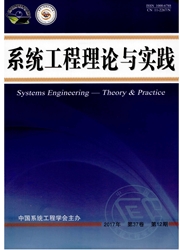

 中文摘要:
中文摘要:
以Dufwenberg和Kirchsteiger(2004)的序贯互惠博弈模型为基础,构建了基于员工互惠的管理者可信行为与员工努力水平的两阶段序贯互惠模型。该模型同时考虑了员工的物质收益和互惠心理收益,并通过模型推导得到了管理者可信行为与员工努力水平的序贯博弈均衡解,证实了管理者可信行为的激励作用,且这一激励作用的发挥还受到员工互惠敏感系数的影响。具体地,当管理者实施可信行为时,具有较强的互惠敏感系数的员工会选择较高的努力水平。此外,论文还以一个实例对理论研究结论作了简要的说明。
 英文摘要:
英文摘要:
Based on Dufwenberg and Kirchsteiger (2004)'s sequential reciprocity game model and employee's reciprocity psychology, this study constructs a two-stage sequential reciprocity model between managerial trustworthy behavior and employee's effort level. The model takes employee's reciprocal psychological income into account. And through model deducing, it gains a sequential game equilibrium solution between managerial trustworthy behavior and employee's effort level. This supports the incentive effect of managerial trustworthy behavior, which is also affected by employee's reciprocity sensitive coefficient. To put it specifically, when facing managerial trustworthy behavior, employees with higher reciprocity trend will exert higher effort level. Furthermore, this study also uses a simple instance to briefly illustrate the theoretical results.
 同期刊论文项目
同期刊论文项目
 同项目期刊论文
同项目期刊论文
 期刊信息
期刊信息
